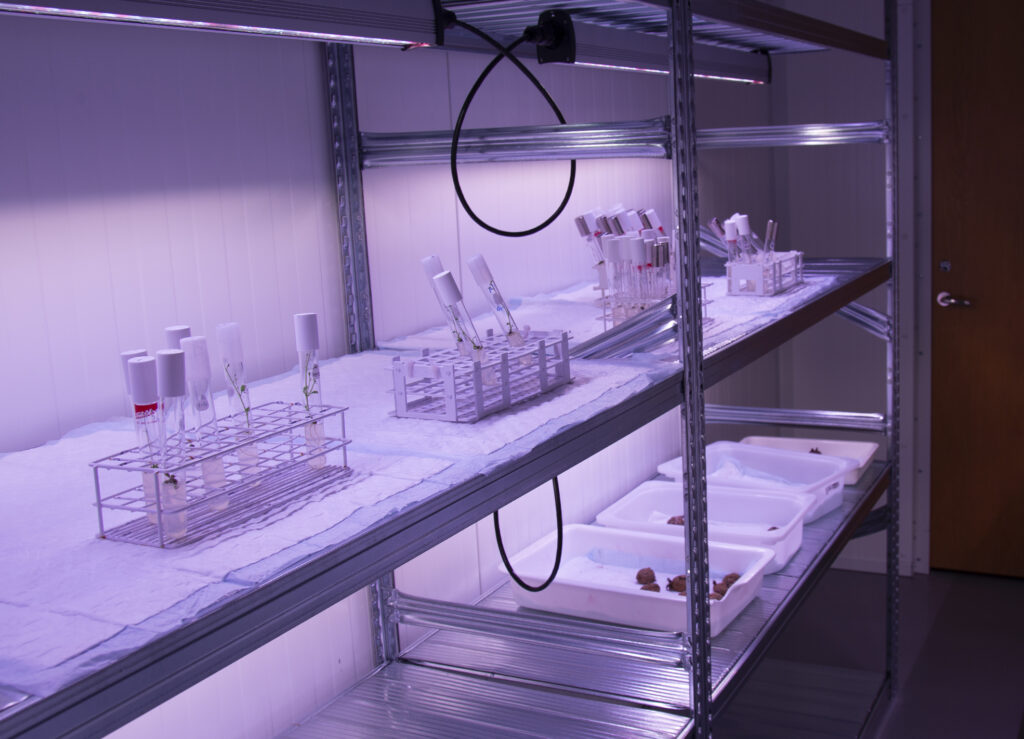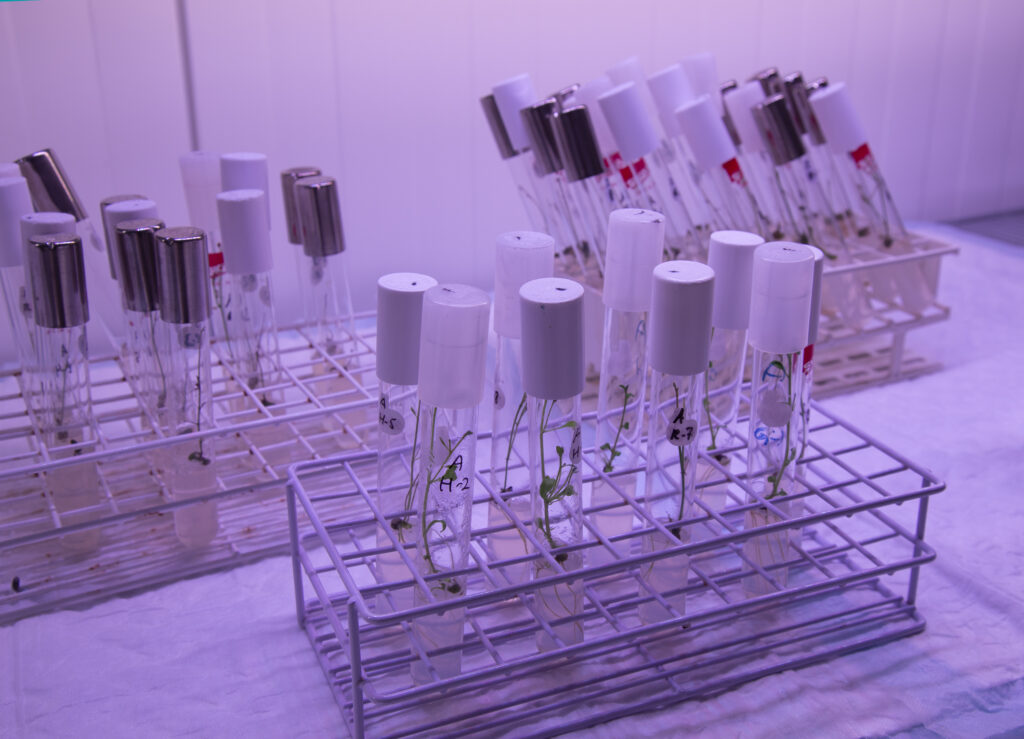In December 2021, Matís and the Farmers' Association of Iceland reached an agreement on tissue culture of potato seed and work on the project has begun at Matís. The last issue of Bændablaðið publishes a discussion of the project, which discusses the agreement and the main aspects of the project.
The purpose of tissue cultivation of potatoes is to ensure that Icelandic farmers continue to have access to healthy seeds of the four Icelandic varieties: Premier, Gullauga, Rauðar íslenskum and Helga. The purpose of stock breeding is to promote the production of stock seeds that are free of viral diseases. Viruses are easily transmitted between mother potatoes and offspring, so tissue culture is the only way to maintain virus-free seeds. Viruses are very harmful to farmers, but virus-infected seeds produce up to a third less crops. Sigurgeir Ólafsson, a former specialist at RALA, created virus-free strains of the Icelandic varieties. The goal of this project is to maintain these stocks. In a collaborative project between the Farmers' Association and Matís, Matís will be responsible for the implementation of work components related to the tissue culture itself.
Bændablaðið quotes Axel Snæland, chairman of the horticultural farmers 'department within the Icelandic Farmers' Association:
"The horticultural farmers 'department within the Farmers' Association was responsible for concluding the agreement with Matís, which includes the tissue cultivation part of the stock cultivation of seed potatoes. Matís' project involves producing tissue-grown seed potatoes, Premier, Gullauga, Helga and Rauðir íslenskum, which are free of viruses and diseases, such as itching and rot. In addition, the potatoes are selected in terms of appearance. '
The project is progressing well and at the moment, potato plants, grown from sprouts, are in glass bottles under special controlled conditions in a tissue culture chamber in Matís' premises, as can be seen in the attached photos.


After further research, it will be possible to return small plants in a cultivation run for further cultivation to seed potato growers for greenhouse cultivation in soil next spring, if all goes well.
The article can be read in its entirety in Bændablaðið here: Stock cultivation of seed potatoes

